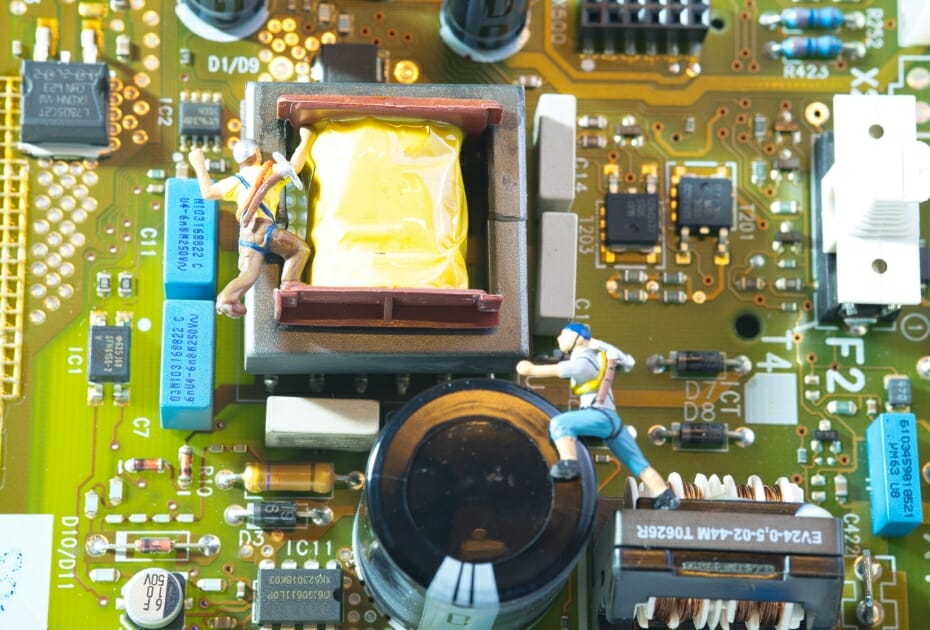

Why Clocking and Timing Solutions Are Important
Every digital system relies on clocks to time operations at specified intervals. The process that sustains the clocking and timing in digital devices is called frequency control. Maintaining the correct frequency is imperative to the function of processors; and ECS, Inc. timing solutions do just that.
In order to control the frequency, we must understand it, so let’s take a step back and look at frequency and how it relates to frequency control.
What Is Frequency?
Frequency is the measurement of how many times a wave created by vibrations repeats in a set amount of time. For example, if it takes a wave half a second to pass a given point, the frequency would be two per second. Frequency is measured in hertz, abbreviated as Hz. Hertz measures the number of waves that repeat in a second. If something is measured at 500 Hz, that would mean it is creating 500 vibrations per second.
Keeping a consistent frequency is the key to operating many systems and processors, such as a city or country’s power grid. The United States uses electricity that operates at a frequency of 60 Hz, or 60 vibrations per second. When the power is running at its normal 60 Hz frequency, generators and users can pass power efficiently and safely with no effect to any devices using the power.
If the frequency gets too far away from 60 Hz, not only does the grid become unsafe, but any devices connected to it could be at risk. Keeping the frequency balanced is tough because it has to be done in real-time, which is where timing solutions come in. They serve as a means of regulating frequency control.
Now, Let’s Talk About Frequency Control
We’ve established what frequency is and why it’s so important to keep consistent, thus the need for frequency control. Frequency control can be defined as the process of maintaining a stable frequency in a system. The frequency can sometimes deviate as the load is stressed and tries to stay balanced. Frequency control is used to regulate the frequency levels to get back to the correct frequency when these deviations happen.
Continuing on with the United States power system example from above, some events that could cause a deviation in frequency and require frequency control measures include:
- One of the large generators in the system malfunctioning and disconnecting, reducing the total amount of power possible in the system.
- One of the large users of power in the system experiencing a fault and being disconnected from the system. This would drastically imbalance the power demand with the supply.
- Transmission towers being damaged in a large storm or event. This would cause a large separation of the network and prevent power from getting to all of the places it needs to be, resulting in an imbalance.
Events like these are when the frequency control components in the system would step in and regulate the frequency. There are often different levels of frequency control in certain systems that involve multiple methods of stabilizing frequency: primary, secondary and sometimes even tertiary.
In the example of a power grid, this would mean measures like having backup generators ready to regulate power as needed or the ability to remotely reset certain areas of a power grid. These measures would be categorized and ranked on what should be done first, second and so on to stabilize frequency.
How Do Timing Solutions Fit Into This?
Modern processes used in frequency control were created in the 1970s with the digital watch. Using 32.768 kHz watch crystals to keep accurate 1-second time, the creation of the digital watch required processes and components that are still used today. These high-quality components of the frequency control process include:
These are the components you need when your project requires accuracy and precision from frequency control solutions. Timing, reliability and performance are synonymous with ECS Inc. frequency control and timing solutions. ECS Inc. has passive and active components that can be used across many industries and devices including non-life sustaining medical equipment, computers, watches, cars and more. For more information or to place an order, contact a sales representative in your area or fill out an online contact form. You are also able to explore ECS Inc. authorized distributors on the website to ensure you are only getting your products from ECS Inc. approved sellers.
Frequency and Frequency Control: Why Do They Matter? was last modified: February 14th, 2023 by